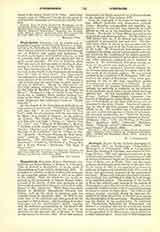

Dieringer, FRANZ XAVER, Catholic theologian, b. August 22, 1811, at Rangeningen (Hohenzollern-Hechingen); d. September 8, 1876, at Veringendorf. He studied theology at Tubingen, was ordained at Freiburg, September 19, 1835, and appointed instructor at the archiepiscopal seminary there. In the autumn of 1840 he became professor of dogma at the ecclesiastical seminary of Speier, and at Easter, 1841, was also made professor of philosophy in the lyceum of the same city. In the spring of 1843 he was appointed professor in ordinary of dogma and homiletics at the University of Bonn, and provisional inspector of the preparatory seminary. When at his instance a homiletic-catechetical seminary was established in 1844, he took charge of the homiletic section. The prestige of the faculty of Bonn had suffered sadly because of the inroads of Hermesianism, and this learned theologian, who was eminently qualified for the work of academic teaching, set about to restore its fallen glory. His brilliant and zealous activity, especially during the first two decades of his office, placed him in the first rank among the shining lights of the university. Besides performing the duties of his professorship, he published he “Katholische Zeitschrift fur Wissenschaft and Kunst,” a periodical devoted to science and church interests, which he had founded in 1844 in opposition to the periodical of the Hermesians, and conducted in a truly Catholic spirit. From 1847 to 1849 it appeared s the “Katholische Vierteljahresschrift”. Dieringer took a prominent part in the founding of the Society of St. Charles Borromeo in 1845, of which he was at first secretary and then president from 1846-1871. In 1853, though retaining his professorship and residing at Bonn, he was made canon of Cologne and ecclesiastical councillor. In 1848 he represented the district of Neuss in the parliament at Frankfort.
His name was among those proposed in 1856 for the vacant See of Paderborn and in 1864 for that of Trier, but it was removed by the Prussian Government. Though his earlier teaching, especially in his “Laienkatechismus”, had been in accordance with the doctrine of papal infallibility, he yielded, at the time of the Vatican Council, to personal motives and to the influence of his colleagues at Bonn and joined the opposition. He had no thought, however, of leaving the Church, and, after negotiations of some length, he yielded to the demand of Archbishop Melchers and made his submission. In order to escape from the strained relations which existed among the divided faculty, Dieringer resigned his offices and dignities during the spring of 1871 and took charge of the parish of Veringendorf in Hohenzollern. In 1874 he was among those recommended for the archiepiscopal See of Freiburg, but he could not accede to the demands of the Baden Government. After 1874 he was constantly in failing health.
Dieringer’s principal publications are: “System der gottlichen Thaten des Christenthums, oder, Selbstbegrundung des Christenthums, vollzogen durch seine gottlichen Thaten” (Mainz, 1841; 2nd ed., 1857), a work which clearly shows the influence of Staudenmaier, especially in its first edition; and the “Lehrbuch der katholischen Dogmatik” (Mainz, 1847; 5th ed., 1865), a book of great merit and formerly much used. An excellent work on theology in popular form is his “Laienkatechismus uber Religion, Offenbarung and Kirche” (Mainz, 1865; 2nd ed., 1868). Another book also in popular style, “Der heil. Karl Borromaus and die Kirchenverbesserung seiner Zeit” (Cologne, 1846), appeared as the first publication of the Society of St. Charles Borromeo and had a wide circulation. Besides these publications there remain to be mentioned the two homiletic works: “Kanzelvortrage an gebildete Katholiken auf alle Sonn- and Festtage des Kirchenjahres” (Mainz, 1844) and “Das Epistelbuch der katholischen Kirche, theologisch erklart” (Mainz, 1863); the polemical writings: “Offenes Sendschreiben uber die kirchlichen Zustande der Gegenwart an Dr. J. B. von Hirscher” (Mainz, 1849; against Hirscher’s publication under the same title); “Dogmatische Erorterungenmit einem Guntherianer” (Mainz, 1852); “Die Theologie der Vor- and Jetztzeit, ein Beitrag zur Verstandigung” (Bonn, 1868; 2nd ed., 1869; against Kleutgen’s “Theologie der Vorzeit”), which appeared first in the “Theologisches Literaturblatt” of Bonn (1868); and: “Expositio doctrinae Tertulliani de republic; et de officiis ac iuribus civium christianorum” (University Program; Bonn, 1850).
FRIEDRICH LAUCHERT

